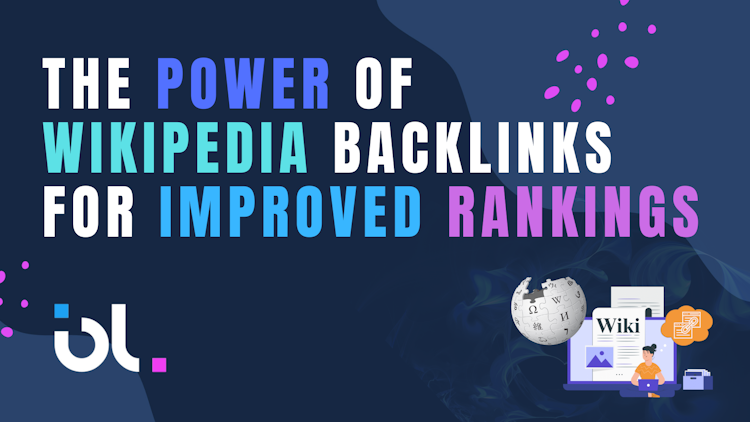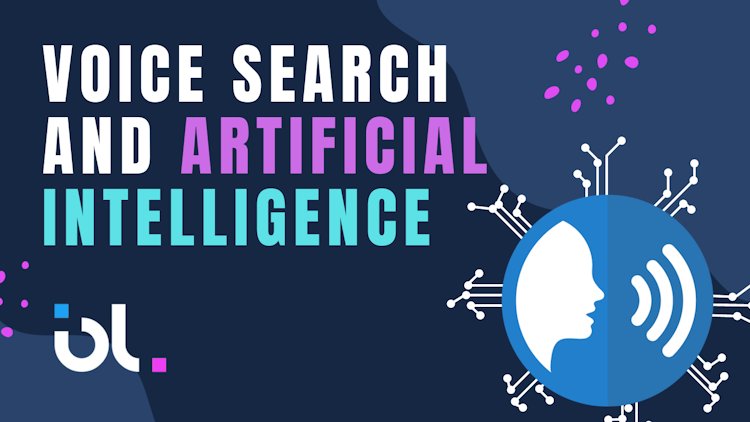

The journey of voice search technology dates back several decades, with remarkable progress made in recent years. Early voice recognition systems faced limitations in accuracy and vocabulary recognition. However, the development of machine learning algorithms and natural language processing techniques has led to a substantial improvement in the efficiency and accuracy of voice search technology.
Advancements in AI have played a pivotal role in enhancing natural language processing (NLP) capabilities in voice search systems. NLP algorithms now empower voice search systems to comprehend and interpret the context, intent, and intricacies of user queries with greater precision.
Context-aware voice assistants leverage user preferences, historical data, and location information to offer tailored responses. For instance, when a user asks about the weather, the voice assistant provides a location-specific forecast. This contextual awareness adds a layer of personalization, making voice interactions feel more natural and human-like.
Last year, voice search experienced widespread adoption and popularity, with virtual assistants like Siri, Alexa, Google Assistant, and others becoming household names. These voice assistants offer an array of features and functions, ranging from answering questions and providing weather updates to playing music, setting reminders, and controlling smart home devices. Voice search has found applications in various industries. In e-commerce, consumers can make purchases using voice commands, while in healthcare, voice-powered applications facilitate virtual consultations and access to medical information. The travel industry has also benefited from voice-activated booking and personalized recommendations.
Businesses have recognized the importance of voice search optimization for websites and SEO strategies. Voice-powered customer service and support, leveraging voice bots and chatbots, have gained traction, providing quick responses and self-service options. Voice analytics help businesses gain insights into customer sentiment and preferences. From the evolution of voice search technology to the benefits and challenges it presents, we will delve into the fascinating world of voice search and AI. So, let’s dive into the article and explore the wonders of voice search and AI.
Evolution of Voice Search Technology
The evolution of voice search technology has witnessed remarkable progress over the years, paving the way for its widespread adoption and integration into various devices. Early voice recognition systems faced limitations in accuracy and vocabulary recognition, often struggling to understand and interpret user commands.
However, with the development of machine learning algorithms and natural language processing techniques, voice search technology has undergone significant advancements. The use of machine learning techniques, especially those based on deep learning and neural networks, has greatly aided in the development of more reliable and efficient speech recognition technology.
These algorithms are trained on enormous quantities of data, which enables them to understand patterns and characteristics in speech as well as distinguish a variety of accents, dialects, and speech patterns. As a result, voice search technology has become increasingly adept at understanding a wide range of user voices and producing accurate transcriptions of spoken queries.
Natural language processing techniques have also contributed to the evolution of voice search. NLP algorithms let voice search engines comprehend user queries’ context, purpose, and nuances. By analyzing speech patterns, NLP algorithms can decipher user intentions and extract the underlying meaning behind their queries.
Advancements in hardware and the integration of voice search capabilities into various devices have played a pivotal role in popularizing its usage. The inclusion of voice search functionality in smartphones, smart speakers, and cars has made it more accessible and convenient for users to interact with digital devices using their voice.
Smartphones have become an integral part of our lives, and voice search integration allows users to perform hands-free searches and execute commands with ease. Smart speakers, such as Amazon Echo with Alexa and Google Home with Google Assistant, have brought voice search technology into our homes, enabling users to obtain information, play music, control smart home devices, and perform tasks by simply speaking.
The integration of voice search in cars has transformed the way we navigate and access information while on the road. routes, and use other services without getting their hands off the wheel or their eyes off the road.
The evolution of voice search technology has been driven by advancements in machine learning, natural language processing, and the integration of voice search capabilities into a wide range of devices. These advancements have greatly improved the accuracy, efficiency, and accessibility of voice search, making it an indispensable tool in our daily lives.
Natural Language Processing and Contextual Understanding
Advancements in AI have greatly improved natural language processing (NLP) capabilities in voice search systems. With the use of NLP algorithms, voice search engines may better grasp the user’s context, purpose, and subtleties in their questions. By analyzing speech patterns, NLP algorithms can decipher user intentions and extract the underlying meaning behind their queries. This contextual understanding allows voice search systems to provide more relevant and accurate responses. Additionally, voice assistants can engage in contextual conversations, retaining information from previous interactions and providing a more seamless and personalized experience.
Enhancements in Voice Search and AI
Enhancements in voice search technology and AI have brought about significant improvements in various aspects of voice interactions, leading to more accurate and personalized experiences for users. One area of enhancement lies in the accuracy and understanding of voice commands. Thanks to advancements in machine learning and neural networks, voice assistants have become more proficient at interpreting spoken language. These technologies enable voice assistants to accurately recognize and transcribe speech, even in the presence of different accents, speech patterns, and background noise. As a result, users can now interact with voice assistants more naturally and rely on them to understand their commands accurately.


Another significant enhancement is the development of multilingual voice search and translation capabilities. Voice assistants can now understand and respond to users in multiple languages, breaking down language barriers and facilitating global interactions. Users can seamlessly switch between languages when interacting with voice assistants, enabling them to communicate in their native language and receive real-time translations. This advancement has tremendous implications for cross-cultural communication and accessibility, making voice search and AI more inclusive and widely accessible.
Advancements in natural language processing (NLP) have improved the ability of voice assistants to engage in contextual conversations and retain information from previous interactions. This means that voice assistants can remember user preferences, recall previous queries, and provide a more personalized experience.
These advancements in voice search and artificial intelligence have revolutionized how we interact with technology. Voice assistants have improved in terms of their precision, intelligence, capacity to comprehend and react to our requirements, and general capability. The advancements in multilingual capabilities, contextual understanding, and personalized responses have made voice search and AI more user-friendly and have opened up new possibilities for seamless and intuitive interactions with digital devices.
Challenges and Future Directions
While voice search and AI have made significant progress, several challenges and future directions remain. The gathering and storage of voice data raises privacy and security issues. Users want proof that service providers are handling their data properly and securely. Another challenge lies in accurately recognizing diverse languages and accents. Voice search systems must be able to understand and respond to users, regardless of their native language or accent. This requires ongoing research and development in speech recognition and language understanding algorithms.
Voice search has bright prospects for the future. Language barriers will be eliminated, and cross-cultural communication will be made easier thanks to multilingual speech capabilities. Voice search may revolutionize how we interact with our digital surroundings by being integrated into new technologies like augmented reality (AR) and virtual reality (VR).
Voice Search and SEO
The increasing popularity of voice search has had a significant influence on the techniques of search engine optimization (SEO). Traditional SEO strategies center around optimizing content for specific keywords and phrases. On the other hand, voice searches are often more in-depth and have a conversational tone to them. As a direct consequence of this, SEO practitioners will need to modify their strategies in order to account for these shifts.
To be optimized for voice search, businesses need to give clear replies to questions that are often asked. Voice search users often seek quick and concise information, and search engines prioritize featured snippets that provide direct answers. Structured data markup and schema.org may assist search engines in comprehending and extracting significant information, boosting the likelihood of appearing in highlighted snippets.
Moreover, optimizing for local search has become crucial with the rise of voice search. Many voice queries have local intent, such as “find the nearest coffee shop.” Optimizing business listings, including accurate location information, opening hours, and customer reviews, can significantly improve visibility in local voice search results.
Voice Search and AI in Everyday Life
Lights, appliances, and security systems can all be managed with simple voice commands thanks to speech-activated smart homes and the IoT. Integration with smart speakers, thermostats, and other devices creates a seamless and intuitive user experience. In terms of entertainment and media consumption, voice search enables users to request specific songs, playlists, or podcasts and receive personalized recommendations based on their preferences. Voice-enabled navigation systems provide real-time traffic updates and directions, making driving safer and more convenient. Voice assistants also assist with scheduling, reminders, and task management, enhancing productivity.
Voice Search and AI in Business
Businesses have recognized the importance of voice search optimization for websites and SEO strategies. Voice search is becoming more popular, so businesses need to change their digital marketing strategies to make sure their information is easy to find when people use voice searches. Voice-powered customer service and support have also gained traction with the use of voice bots and chatbots to handle customer interactions. These automated systems provide quick responses and self-service options, while voice analytics help businesses gain insights into customer sentiment and preferences.
Voice Search and AI in Education
Voice-activated learning platforms and interactive educational tools are transforming the way students engage with educational content. Voice assistants provide individualized instruction and language-learning opportunities that are catered to the specific requirements of each user. Accessibility features for students with disabilities, such as voice-activated screen readers or speech-to-text tools, enhance inclusivity in educational settings. Voice search also facilitates online research and study assistance, allowing students to find information quickly and efficiently. The impact of voice search on classroom instruction and assessments holds the potential for further advancements in educational practices.
Voice Search and AI in Healthcare
Voice-enabled electronic health records and clinical documentation systems streamline healthcare workflows, enabling healthcare professionals to document patient information efficiently. Voice assistants play a vital role in remote patient monitoring and telemedicine, facilitating virtual consultations and reducing the need for in-person visits. Voice-driven medical diagnoses and symptom analysis aid healthcare professionals in making accurate assessments and providing timely care. Moreover, voice search allows patients to access health information and receive medication reminders, enhancing their engagement in self-care. Maintaining patient privacy and confidentiality remains a critical ethical consideration in the healthcare sector.
Voice Search and AI in Finance
Voice-activated banking services and secure voice authentication enhance convenience and security in financial transactions. Voice-activated tools for financial planning and investment guidance provide consumers with individualized suggestions and perspectives on how to proceed. Voice search enables real-time stock market updates and financial news, allowing users to stay informed about their investments. Voice-driven budgeting and expense-tracking applications simplify financial management, providing users with a hands-free approach to monitoring their finances. Concerns regarding voice security in financial transactions and fraud prevention need to be addressed to ensure user trust and data protection.
Voice Search and AI in Transportation
Voice-controlled in-car entertainment systems and navigation improve driver convenience and safety by minimizing distractions. Voice assistants enable hands-free communication while driving, ensuring drivers can stay connected while keeping their focus on the road. Voice-enabled booking and ticketing systems for public transportation streamline the ticketing process and improve the overall commuting experience. Voice-guided instructions in autonomous vehicles enhance the user experience, offering a seamless and natural way to interact with the vehicle. However, challenges associated with reducing driver distractions and ensuring voice recognition accuracy in noisy environments need to be overcome.
Voice Search and AI in Social Interactions
Voice-activated social media engagement and content sharing enable users to interact with social platforms using voice commands. Voice assistants integrated with messaging and communication apps provide hands-free, voice-based conversations. Voice search assists users in finding local events, restaurants, and social activities based on their preferences. Voice-powered language translation enhances cross-cultural communication by allowing real-time translation during conversations. While voice search enhances social interactions and convenience, it is important to strike a balance between voice-based interactions and maintaining human conversational skills.
Conclusion
Voice search and AI have undergone significant advancements, revolutionizing various aspects of our lives. The evolution of voice search technology, coupled with improvements in natural language processing and contextual understanding, has led to more accurate and personalized voice interactions. Despite challenges such as privacy concerns and language recognition, the future of voice search holds promising opportunities, including multilingual capabilities and integration with emerging technologies like AR and VR.
The benefits and applications of voice search are vast, ranging from convenience and personalized recommendations to enhancing customer experiences in industries such as e-commerce, healthcare, and transportation. Voice assistants have become virtual companions, seamlessly integrating into our daily routines and providing hands-free control over numerous devices and services.
The impact of voice search on SEO practices is significant, requiring businesses to adapt their strategies to accommodate longer, more conversational queries and optimize for featured snippets and local searches. Voice search has also made its mark in education, healthcare, finance, and social interactions, transforming the way we learn, access medical information, manage finances, and engage with others.
As voice search and AI continue to shape our digital landscape, it is crucial to address privacy and security concerns, improve language recognition capabilities, and strike a balance between voice-based interactions and human conversational skills. With ongoing advancements and innovations, voice search and AI will undoubtedly play an even more integral role in our lives, enabling seamless and intuitive interactions with technology while enhancing productivity, convenience, and personalization.




